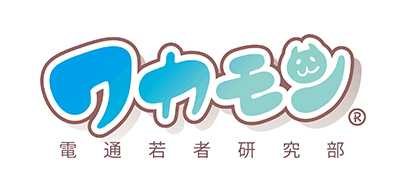Continuing from last time, we welcomed model Rina Tanaka as our guest. Wakamon researcher Mihoko Nishii asked her various questions about "self-production skills."
"How to get your message across" is more important than "what to convey"
Nishii: I think self-production and SNS are inextricably linked. You have over 180,000 Twitter followers and 700,000 followers on the fashion coordination app WEAR. Do you have any particular strategies when using SNS?
Tanaka: It might sound obvious, but I focus more on "how to get the message across" than "what to convey." There are so many tools for sharing information now, which makes it tough for creators, but I also think it's incredibly hard for the audience to properly follow every single platform. So, I write important things multiple times and make sure they're understandable even without reading previous or subsequent posts. I also instinctively pay attention to whether things are visually clear at a glance or if the key points come across even during a quick skim. Plus, after a product launches, I always ask for feedback to find areas for improvement and check my assumptions.
Nishii: So it's a one-person media mix and a one-person PDCA cycle, huh? (laughs)
Tanaka: Since I've done everything solo up until now, it probably just became second nature (laughs). But recently, I started feeling like I could see the ceiling of what I could achieve alone, and I found myself thinking, "If only there were more Rina Tanakas..." (laughs). That's why I decided to join an agency last year.
Nishii: After working solo for so long, did you find it difficult to join an organization?
Tanaka: At first, aligning the agency's rules with what I wanted to uphold was tough. I struggled to match the work pace and vision. But thanks to meeting people who understand my ideas, I feel I'm producing higher-quality work now than when I was alone. There's only one Rina Tanaka, but working with colleagues who share a similar direction to my thinking creates so many more possibilities.
Nishii: When we listen to what today's young people seek from companies, the overwhelming majority want to collaborate with others to create something great. Personally, though, I'm concerned that team strength only truly emerges when individual personalities come together. If individual capabilities aren't developed, team strength won't grow either. That's why I believe cultivating your own goals and vision, like Tanaka-san has done, should come first.
Repeating failures and successes is how you grow yourself.
Nishii: Speaking of teams, Wakamon's research also shows data indicating an increase in people who can't speak their minds because they fear being disliked or worry about others' opinions.
Tanaka: Honestly, I'm a huge scaredy-cat too. Whenever I release something, I'm always terrified of the reaction. When I published my first book, it was so painful I broke out in hives all over my body. I truly felt the fear of putting something out into the world under my own name. But conversely, the sense of accomplishment when I get positive reactions from people is immense. I think accumulating those experiences has led to my own growth. I was originally extremely shy around people; when I entered university, it was so bad I couldn't even introduce myself in front of others. It took years of standing in front of people as a reader model to finally overcome that.

Nishii: It's hard to imagine that about you now, Tanaka-san. With more people struggling with real-life communication, stories like yours are really encouraging. It ties back to what we discussed earlier about individuality – it's not just about gathering information, but actually participating, getting involved, and experiencing both failures and successes that nurture personal strength and vision.
Tanaka: I truly believe seeing is believing. If you fear failure, you become paralyzed. But when you tackle each thing in front of you one by one, there comes a moment when you realize you've overcome what used to be difficult. The key is to keep visualizing the person you want to become. You can't change everything at once, but if you live each day imagining that future self, you can gradually move closer to who you aspire to be.

【Wakamon Profile】
Dentsu Inc. Youth Research Department (nicknamed Wakamon) is a planning team that engages with the real lives and mindsets of young people, primarily high school and university students. We explore hints to brighten and invigorate the near future, starting from their "now." By anticipating the future through their insights, we realize new businesses that foster better relationships between young people and society. Currently, 14 project members are based across our Tokyo headquarters, Kansai branch, and Chubu branch. We also share updates on the Wakamon Facebook page.













